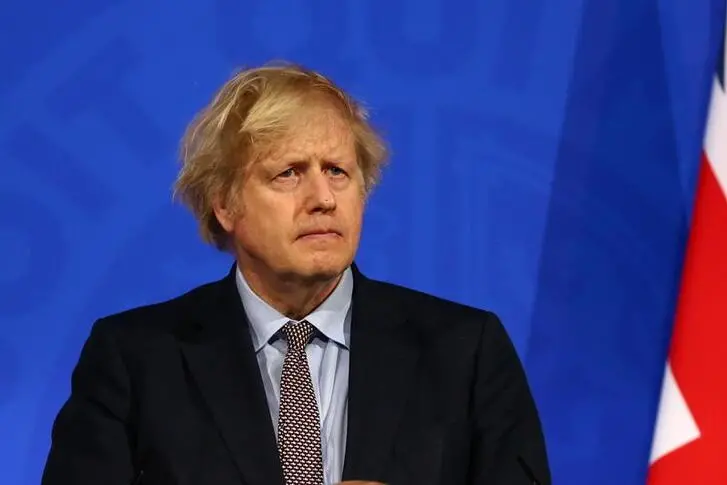PHOTO
Following the deepest review of the UK’s foreign posture since the end of the Cold War, Prime Minister Boris Johnson this month launched a long-awaited, integrated international relations strategy.
The new strategy seeks to answer one of the fundamental questions that remains unanswered since the 2016 Brexit referendum: What kind of country does the UK want to be as it moves on from its EU membership?
Johnson favors the UK becoming a buccaneering nation that will double down with countries outside of Europe. However, the referendum showed that the people who voted to exit the EU hold diverse, and sometimes divergent, views. Some “Leave” voters, for instance, focused on the costs of EU membership, including the UK’s financial contributions to the budget of Brussels, in the hope that the money could be redirected toward domestic policy ends.
While Johnson is putting his prime ministerial power behind his “Global Britain” vision, and the opportunities this could bring, he faces significant challenges in the post-Brexit international landscape.
The two pillars of UK foreign policy in the postwar period — its US and European alliances — are now in flux. Johnson is misaligned with US President Joe Biden on a number of key issues and also faces tricky post-Brexit relations with the UK’s EU neighbors.
This creates a headache at a time when Johnson wants to recalibrate UK international policy in every part of the globe and when the nation faces massive challenges, from Russia’s stridency to the rise of China.
One critical question is to what extent the UK should remain a Europe-aligned economy. Many Brexiteers argue that diverging significantly will boost growth by developing stronger links with key non-EU industrialized nations and emerging markets. Take, for example, the Gulf Cooperation Council states, which are a key UK target for developing deeper relations.
Some post-Brexit divergence is inevitable as the economies of the UK and EU evolve. However, the UK’s ability to leverage this, in the short term at least, can be overplayed, as even some Brexiteers acknowledge.
Despite the historic change that Brexit brings, it is therefore far from certain that Johnson will be able to deliver fully on his Global Britain vision.
Moreover, almost two years into his premiership, the window of opportunity to act on his agenda might be closing fast as the countdown on his term in power continues.
• Andrew Hammond is an Associate at LSE IDEAS at the London School of Economics.
This is the executive summary of the latest research report published by the Arab News Research & Studies Unit.
Copyright: Arab News © 2021 All rights reserved. Provided by SyndiGate Media Inc. (Syndigate.info).





















